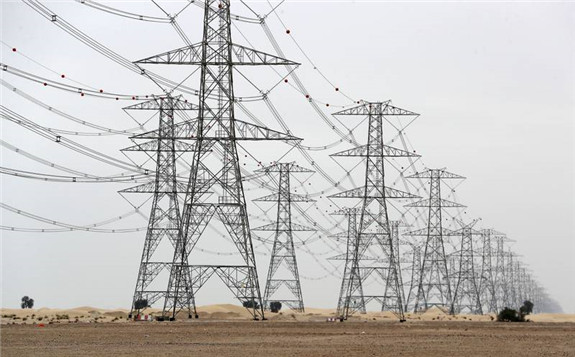Energy demand in Dubai grew 10 per cent in 2021 as the emirate’s economy chartered a recovery from the coronavirus-induced slowdown on the back of a stimulus package and other government measures.

Total demand rose to 50,202 gigawatt-hours last year, compared with 45,712 gigawatt-hours in 2020, the Dubai Electricity and Water Authority (Dewa) said on Monday.
“Increased energy demand in Dubai reflects the economic recovery and the return of key activities,” said Saeed Al Tayer, managing director and chief executive of Dewa.
Dubai, the commercial and tourism centre of the Middle East, has recovered from the coronavirus-induced slowdown after measures to curb the spread of the virus and strengthen the business environment were introduced.
The emirate's government introduced stimulus packages worth Dh7.1 billion ($1.93bn) to support its economy and soften the blow of the pandemic on businesses and people.
“Dubai has proactively benefited from the Fourth Industrial Revolution technologies and implemented robust precautionary measures to ensure business continuity,” Mr Al Tayer said.
“This vision has contributed to Dubai presenting a global role model in readiness to deal with different challenges and turn them into promising opportunities.”
Last year, Dewa opened 16 substations valued at Dh2.9bn to cope with the rise in demand for electricity. These include 14 new 132kV stations with a conversion capacity of 2,100 megavolt amperes and two 400kV stations with a conversion capacity of 4,000 megavolt amperes at Mohammed bin Rashid Al Maktoum Solar Park and in Al Quoz 2, the utility said on Sunday.
Dubai also plans to derive about three quarters of its energy needs from clean sources by 2050.
The utility is developing the Mohammed bin Rashid Al Maktoum Solar Park, which will have a capacity of 5,000 megawatts upon completion in 2030.
The emirate is also increasing the use of sustainable transport as part of its 2030 green mobility initiative.
In 2020, Dewa limited the losses of its electricity transmission and distribution networks to 3.3 per cent, compared with between 6 per cent and 7 per cent in Europe and the US.
Water network losses decreased to 5.1 per cent, compared to about 15 per cent in North America, it said.
Dewa also plans to list on the Dubai Financial Market, becoming one of 10 state-backed companies to be floated as part of plans to boost activity on the local bourse.